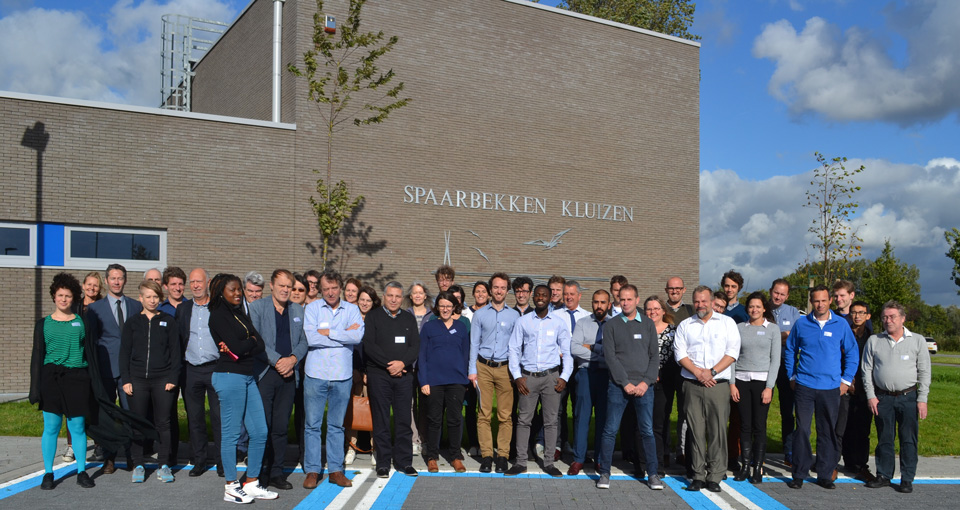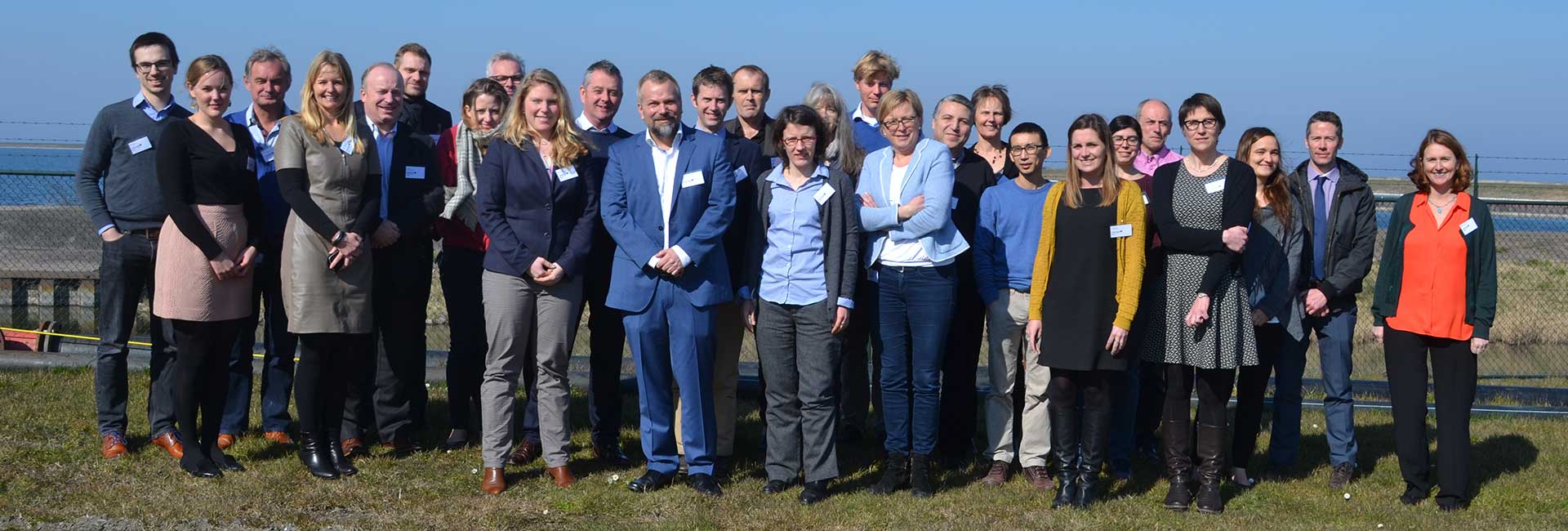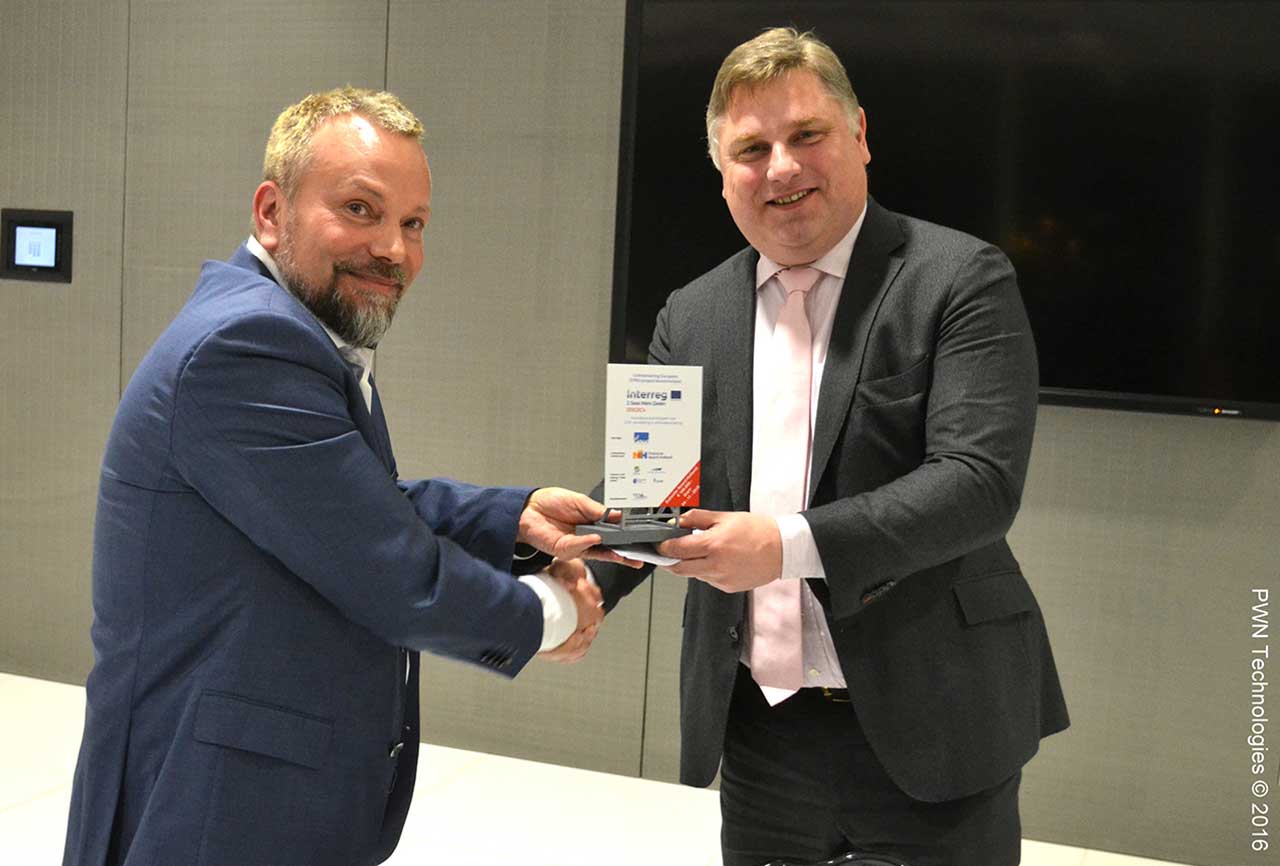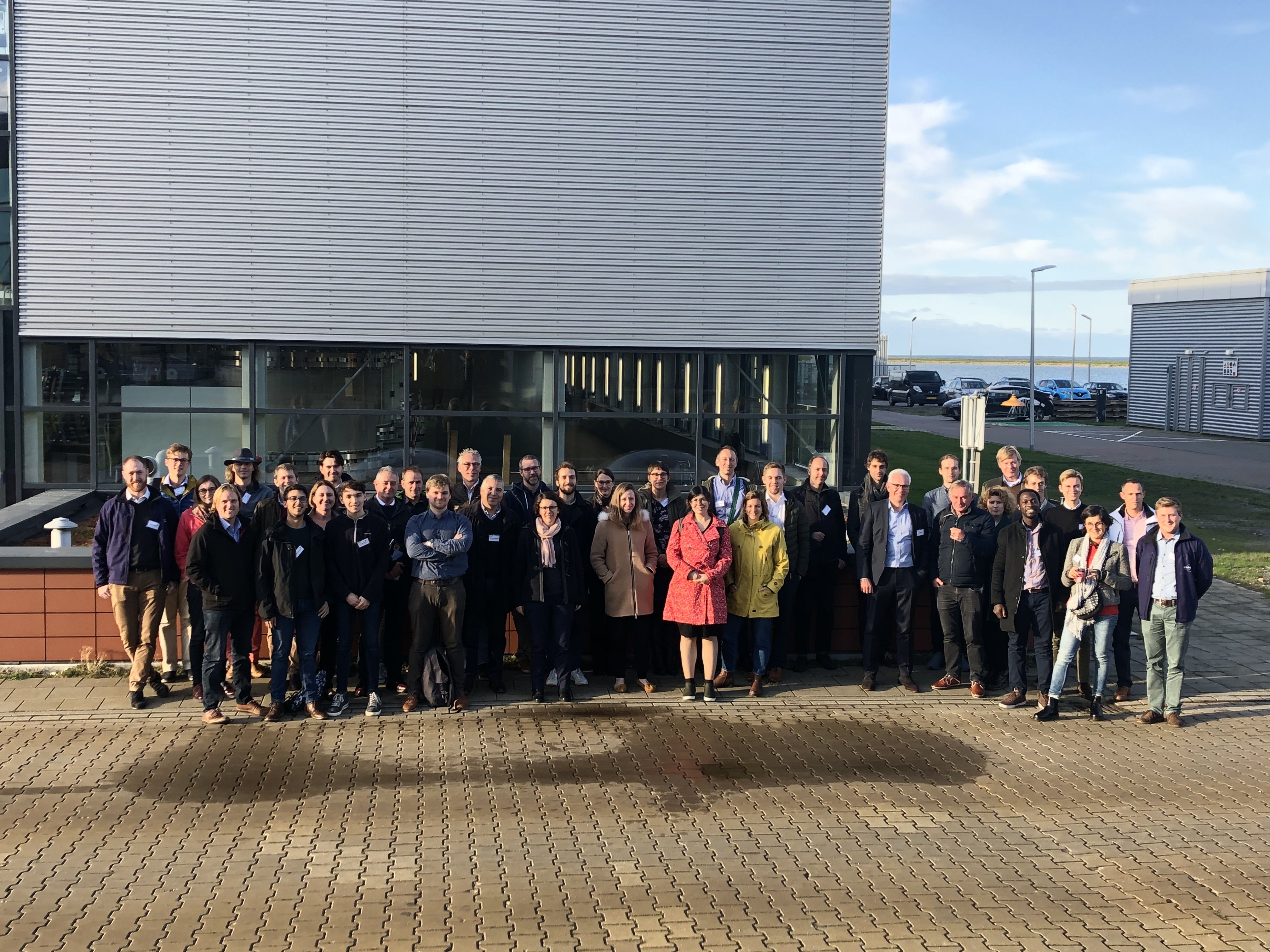In this project, there were a variety of outcomes and results. Results are specifically highlighted in the feasibility studies and presentations which are posted on this webpage.
The DOC2C’s consortium had their first official meeting at PWNT’s R&D Center in Andijk on 17 March 2016. The consortium came together to discuss the strategy, outputs and deliverables of the DOC2C’s project, that covers a period of four years.
The meeting resulted in enthusiasm, inspiration and new ideas and joint commitment. A guided tour followed in the PWNT R&D Center, where the project partners could take a look at the technologies of PWNT, like SIX® (Suspended Ion Exchange) and CeraMac®
All project partners considered the meeting as fruitful, structured and promising. They are looking forward to an intensive collaboration and innovative results.
After the meeting, all project partners were invited at the residence of the Province of North Holland, Paviljoen Welgelegen in Haarlem, hosted by the Vice Governor of the Province of North Holland, Cees Loggen, also ambassador of the DOC2C’s project.
The Province of North Holland fully supports DOC2C’s by co-financing the project. Therefore Cees Loggen handed over a bord buster to PWNT’s CTO Gilbert Galjaard, to endorse the importance of DOC2C’s for the Province. Beside the Province of North Holland, also the Dutch Government is co-financing this project.
On 21 September, the first workshop for the observers took place at PWNT in Andijk, to update them on the progress the project partners have made so far. During this workshop topics and challenges related to dissolved organic carbon (DOC) removal from drinking water sources were discussed and presentations were given.

On 5 October last, the second DOC2C’s workshop with observers took place at De Watergroep in Kluizen-Evergem Belgium. During this second workshop, the project partners and a group of observers presented research results and their progress within the DOC2C’s project and a lot of constructive discussions took place. The entire day was inspirational and led to new ideas and collaborations.

On 6 November, the third DOC2C’s workshop with observers took place at The Mayflower Water Treatment Works in Plymouth, UK. During this third workshop, the project partners and a group of observers presented research results and their progress within the DOC2C’s project. A guided tour on site was arranged, which was well received by the observers. It was an inspirational day, with good discussions on DOC matters.

For the past 4 years, PWNT has been the lead partner of the DOC2C’s consortium. The project started in 2016, and the final dissemination workshop was held in Andijk in November 2019.
Results project and contributions PWNT
“The DOC2C’s project brought together a group of water industry professionals who worked on laboratory analytical methods, applied research pilot plants using ion exchange and ceramic membranes, prototype a ceramic nanofilter plant, brine treatment, and full-scale plants using innovative technologies in an effort to evaluate techniques for a better understanding of how to control DOC in surface water treatment. This also includes characterization of raw water organics as well as the impact of DOC on any downstream processes to filtration. The cross-border collaboration was an enormous benefit to the project, with project partners and observers sharing and learning from each other’s experiences throughout the study.” — Holly Shorney-Darby, Senior Project Manager PWNT
For those interested in the findings of the research programme, on the DOC2C’s website you will find four feasibility study reports and over 64 papers/presentations from the workshops and external conferences, all related to DOC in surface water.



